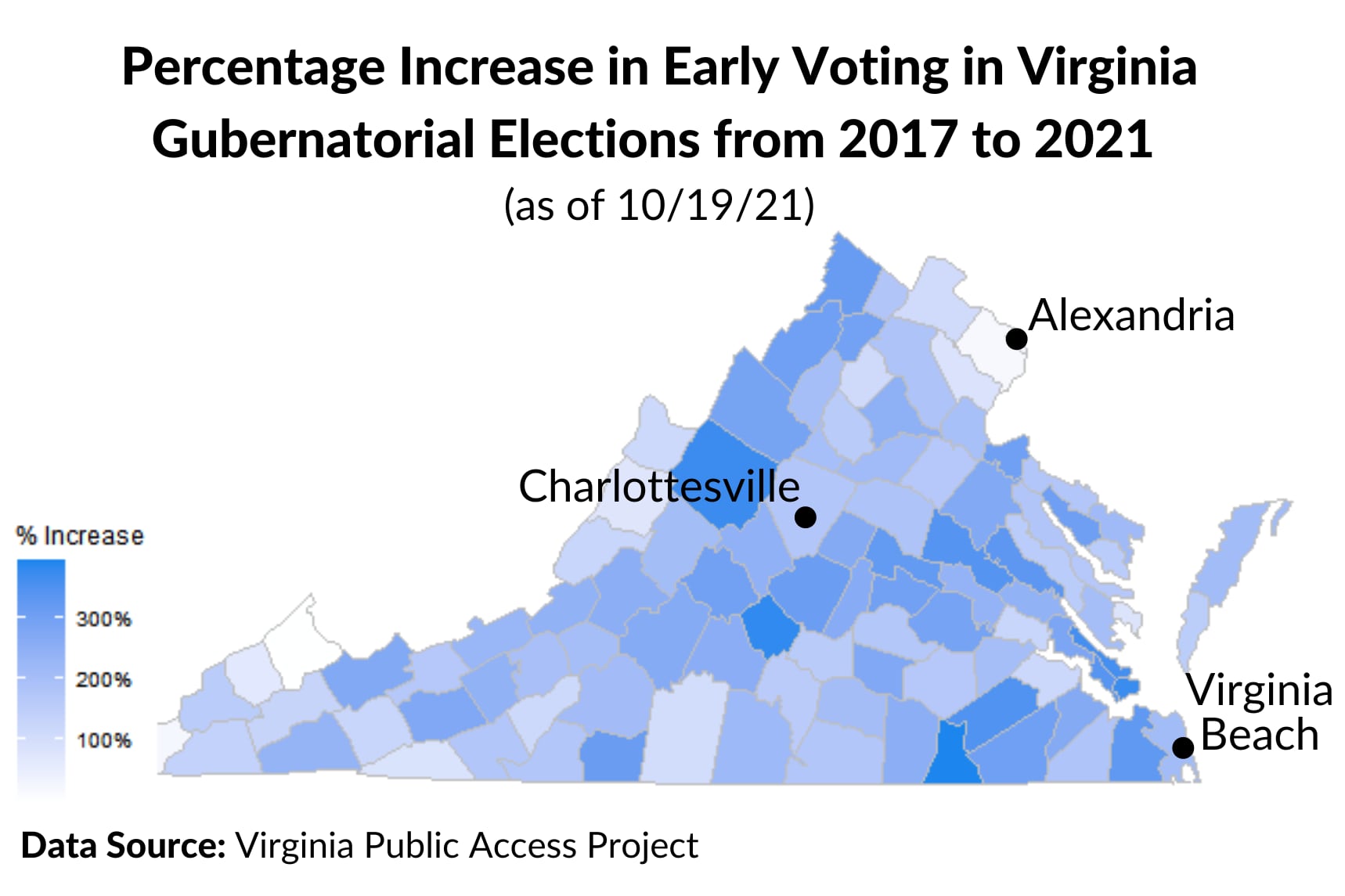This week I bring you a graphic that I made with data from the Virginia Public Access Project. The map shows how much early voting has already increased in Virginia’s 2021 gubernatorial election compared with the one in 2017. Even with more than a week of early voting left, Virginia is smashing its 2017 early voting numbers, with places like the city of Hampton, north of Norfolk and Virginia Beach, experiencing a whopping 371% increase in early votes compared with 2017.
The map also shows that areas in Northern Virginia — home to Alexandria, Arlington, and other D.C. suburbs — are seeing much less dramatic increases in early votes so far. The rural western portion also appears to be lagging behind counties in the interior of the state in early vote increases. The number of early voting locations and their schedules vary widely from place to place in Virginia.
So why are we seeing these huge increases? Many experts are pointing to the pandemic as having boosted interest in early voting since 2020. In addition, Virginia recently introduced no-excuse absentee voting and eliminated its ID requirements for voting, all of which appear to be driving these huge increases.
I’m no expert on the Virginia electorate, so if you see any trends in the map that I missed, reach out and let me know at fbarrilleaux@votebeat.org.






